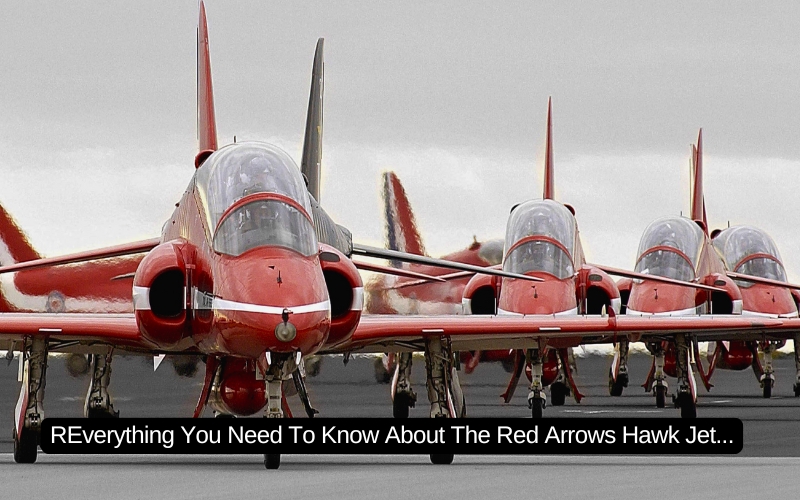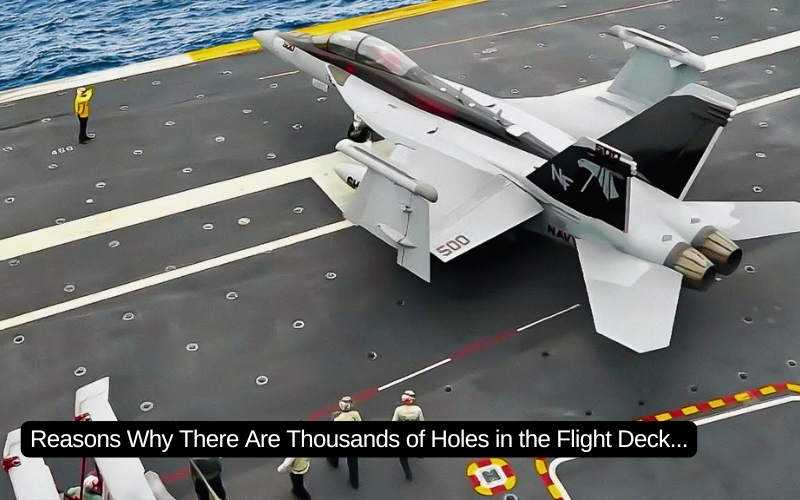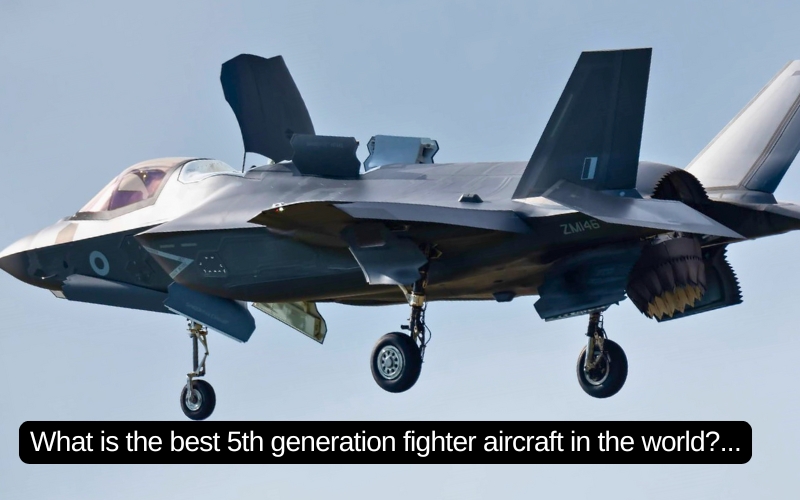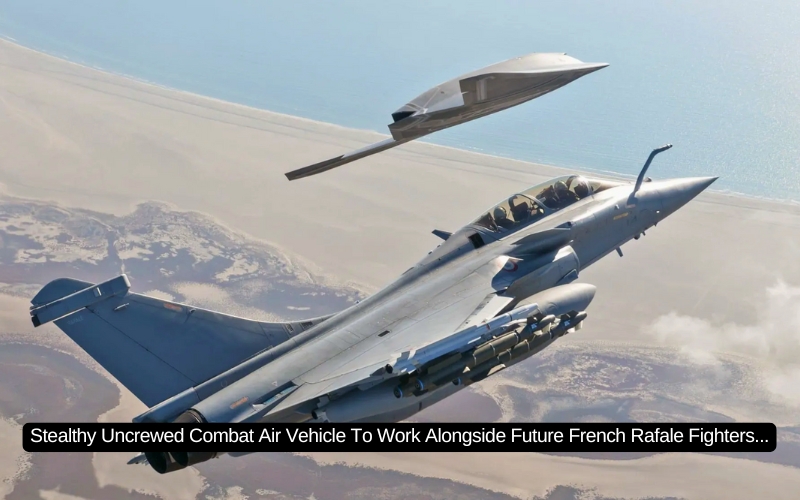Join us on the battlefield as we take a trip across the globe to find the biggest, brightest and best weaponry.

Warfare has always lead to the biggest leaps forward in technology, which each Country constantly striving to have the most advanced and capable armaments to protect their interests at home and abroad. Seemingly drawing inspiration from science-fiction, the latest and greatest advancements in military hardware and future weaponry paint a scarily accurate and dangerous view of the world of warfare in coming years.
Join us on the battlefield as we take a trip across the globe to find the biggest, brightest and best weaponry and military hardware from recent years, as well as predictions of the future.
ADAPTIV camouflage
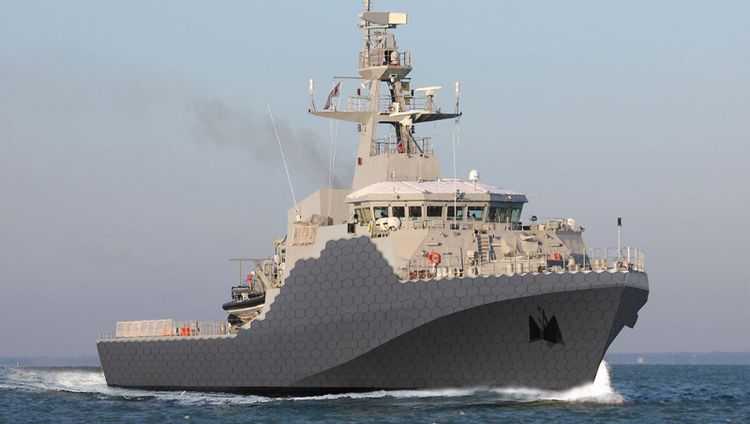
The enemy can’t shoot what they can’t see. That’s the goal of BAE Systems ADAPTIV camouflage; to mask a military vehicle’s infrared signature and shield them from detection by allowing them to blend in with its surroundings.
ADAPTIV camouflage on helicopters
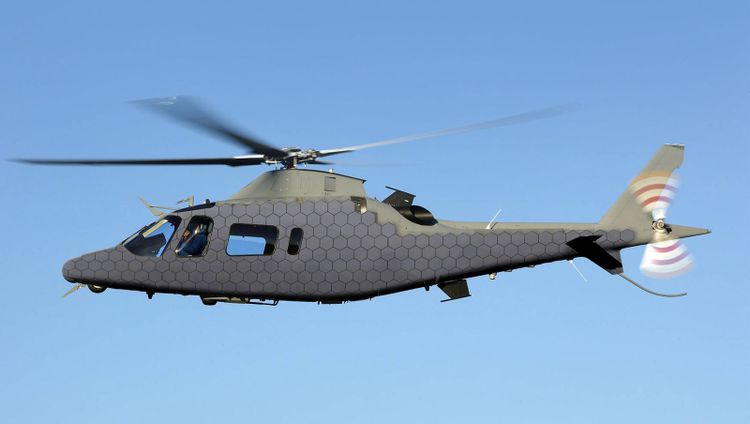
This technology essentially renders thermal imaging systems obsolete and ensures friendly fighting vehicles are offered some protection from initial detection.
The same system can also be used to highlight allied vehicles to friendly forces and prevent blue-on-blue incidents.
ADAPTIV camouflage in action
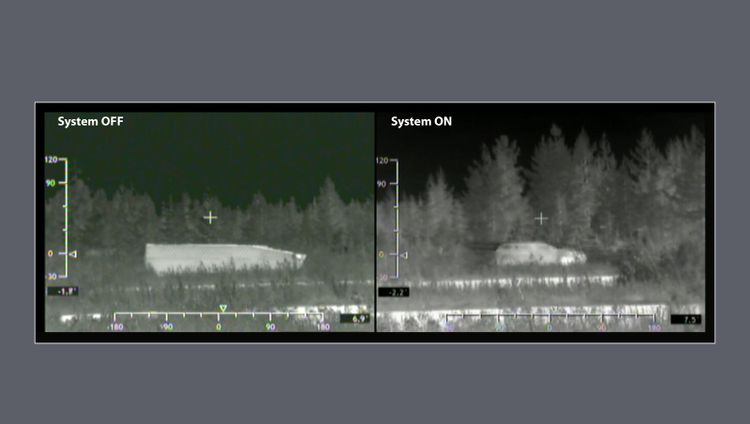
The ADAPTIV camouflage is made up of a honey-comb like system that can be installed in modules on any vehicle and heated or cooled as necessary to match the surrounding environment.
T Ghost
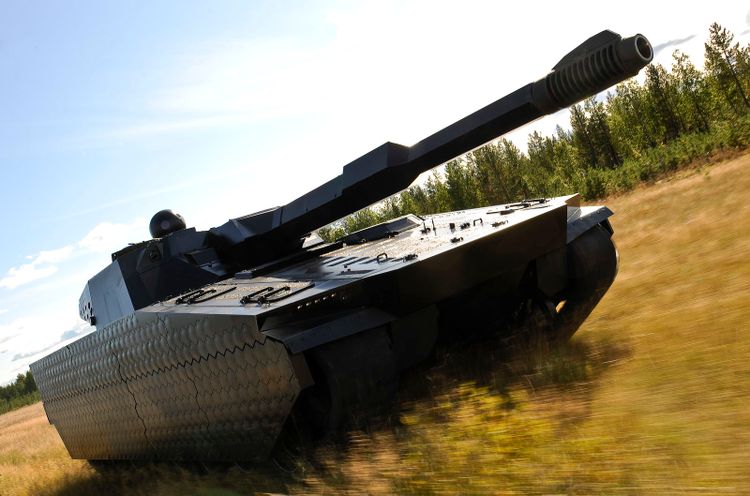
The Swedish T Ghost is a camouflaged tank that uses BAE’s ADAPTIV camouflage to make it invisible to enemy thermal imaging systems.
The Ghost tank also uses a high-calibre 120mm compact main cannon with new technology designed to reduce recoil and lower overall vehicle weight.
The result is a nimble and powerful medium fighting tank. The bleeding edge technology on this tank, in theory, allows the users to strike first before the opposing forces even realise they’re there.
Magneto Hydrodynamic Explosive Munition (MAHEM)
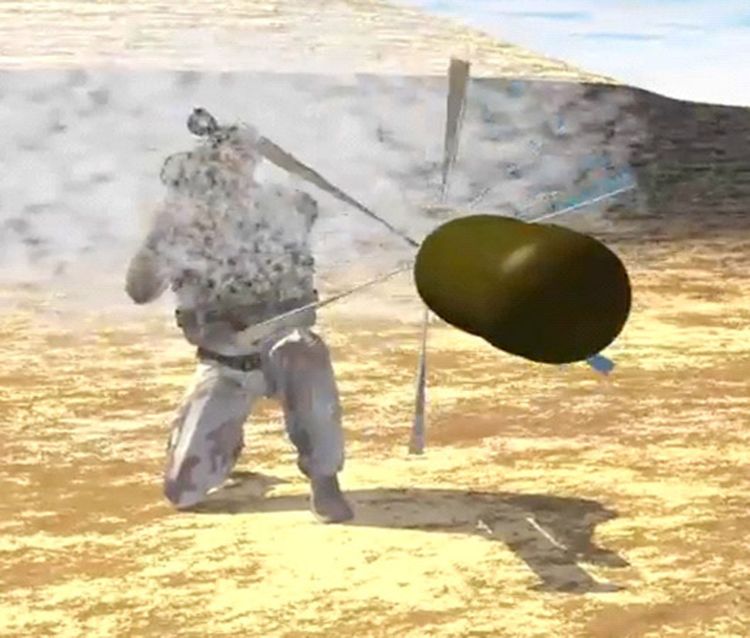
The MAHEM weapons system by DARPA uses a magnetic flux generator to fire a projectile without the traditional use of chemical explosives creating a more efficient and precise launch system.
This projectile weapons system also uses molten metal to penetrate enemy armoured vehicles increasing lethality and effectiveness on the battlefield.
Taser Shockwave
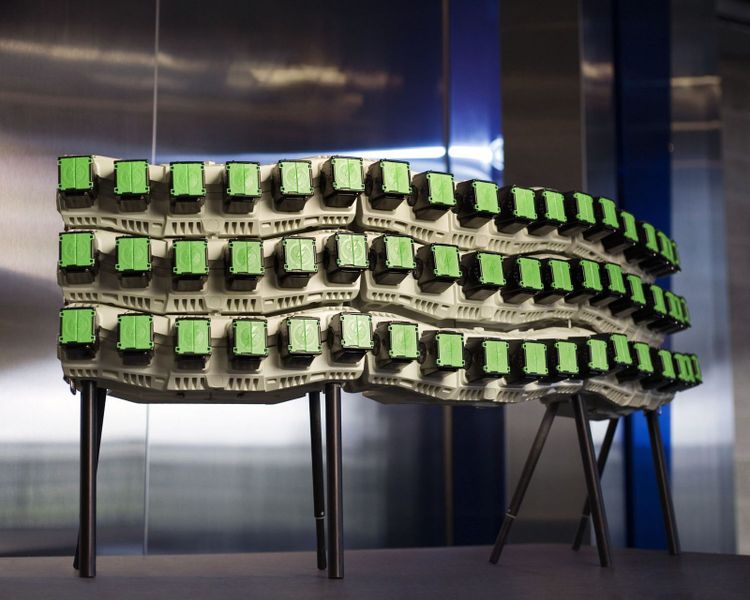
The TASER Shockwave is a large-scale area denial system designed to help assist with riot control situations. Essentially a large modular system for firing numerous TASER X26 stun guns in a 20-degree arc with a 25-foot range. Not something you’d want to be anywhere near when it went off.
The TASER Shockwave is also capable of being daisy chained with multiple other units increasing area coverage and presenting an even bigger threat to violent rioters. A shocking piece of riot control weaponry for sure.
Modular Advanced Armed Robotic System
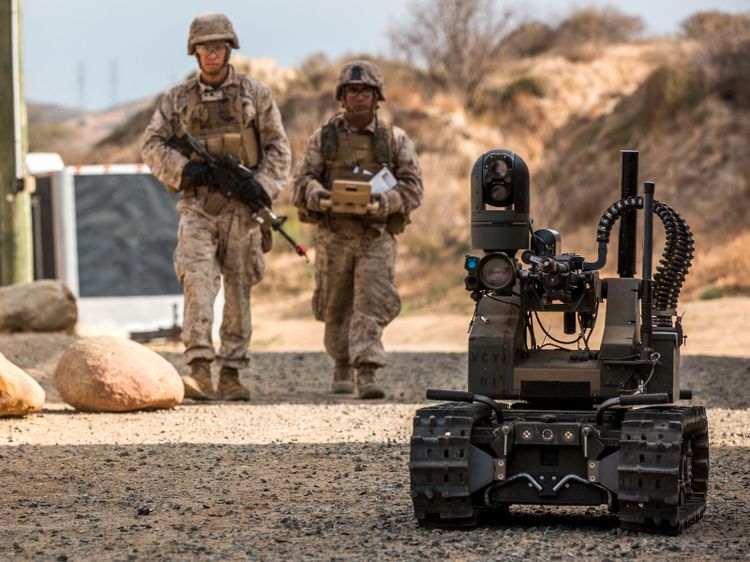
The Modular Advanced Armed Robotic System is a heavily armed bot designed to save lives and handle situations too dangerous to send real people into.
Why send men to do a job when a robot can do it just as well? While most of us live in fear of being replaced by robots, soldiers on the battlefield are probably grateful to see this tracked monster rock up alongside them.
The MAARS robot can be armed with a 400-round M240B machine gun, a grenade launcher or even used to drag injured soldiers out of danger. Capable of a top speed of just 7 mph, it’s just about fast enough to keep up with the troops and has the staying power too – with a battery system capable of running up to 12 hours. Luckily there’s no AI involved, so we’re not going to see the robot uprising just yet.
Black Knight ARCV
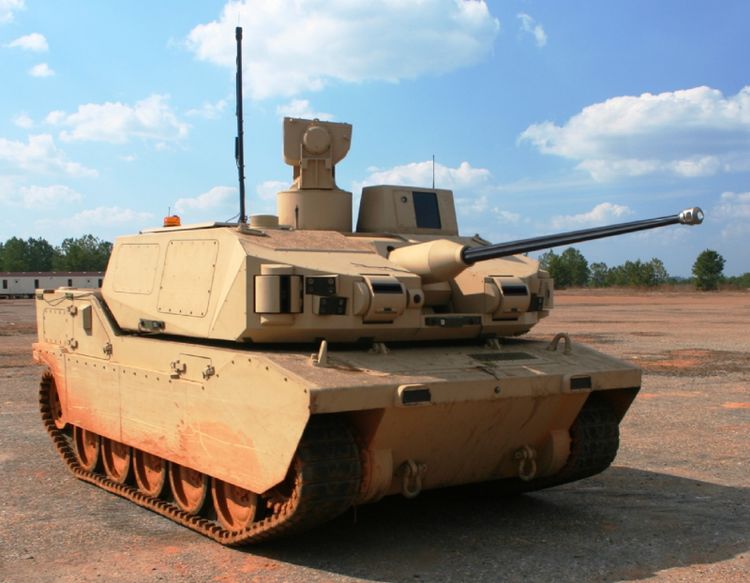
The Black Knight Unmanned Combat Vehicle is a prototype unmanned combat vehicle with the appearance of a small tank and the firepower to match.
Like the MAARS robot, the Black Knight Unmanned Combat Vehicle is designed to be sent into high-risk situations to avoid unnecessary danger to human troops. The current technology is not without limitations and issues with GPS, wireless communication and sensors still need to be worked out but apparently, it is a combat vehicle that shows plenty of promise.
A 30mm cannon and 7.62mm coaxial machine gun, combined with the ability to be deployed from a military transport aircraft make this a combat vehicle to be reckoned with.
Thunder Generator
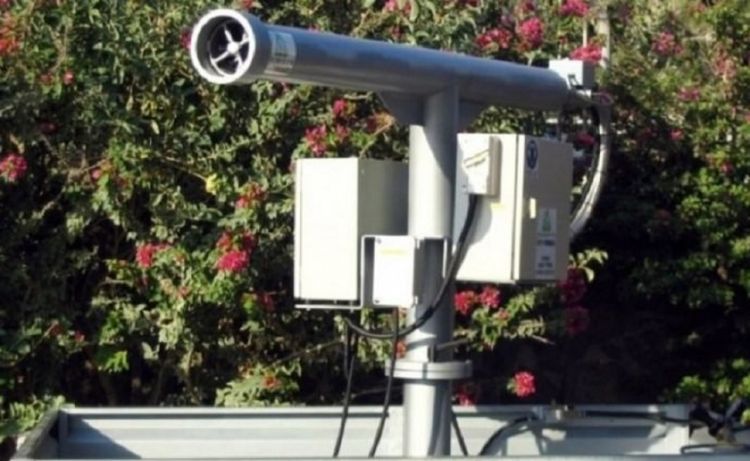
A few years ago the Israeli Army, alongside PDT Agro was experimenting with a weapon known as the Thunder Generator.
This machine was designed to detonate an explosion in its barrel, then release that as a high-speed shockwave that could be used to deafen (temporarily) and push back people up to 100 feet away. Useful for a variety of situations no doubt.
Active Denial System (ADS)
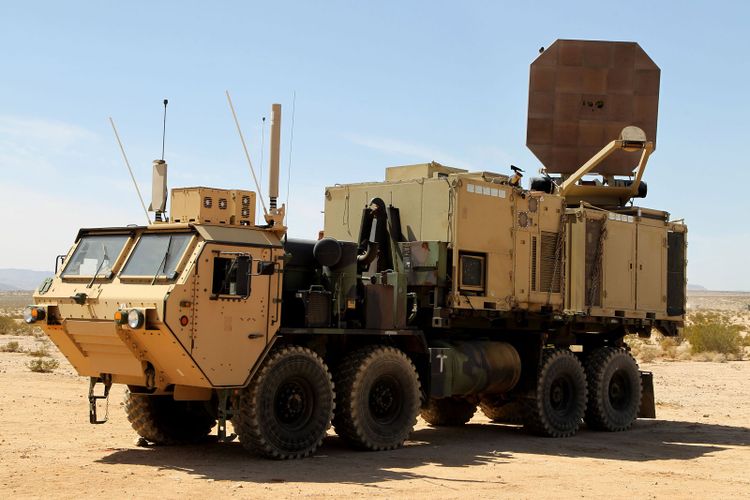
Another non-lethal energy weapon designed to help with crowd and riot control. Also known as the “heat ray” this system works by heating the target’s surface on the same principles as a microwave oven.
Under continued exposure, people have experienced several burns to the top layer of their skin. The idea is simple enough – things get so hot you wouldn’t want to stick around.
Hypersonic Missile – X51A Waverider
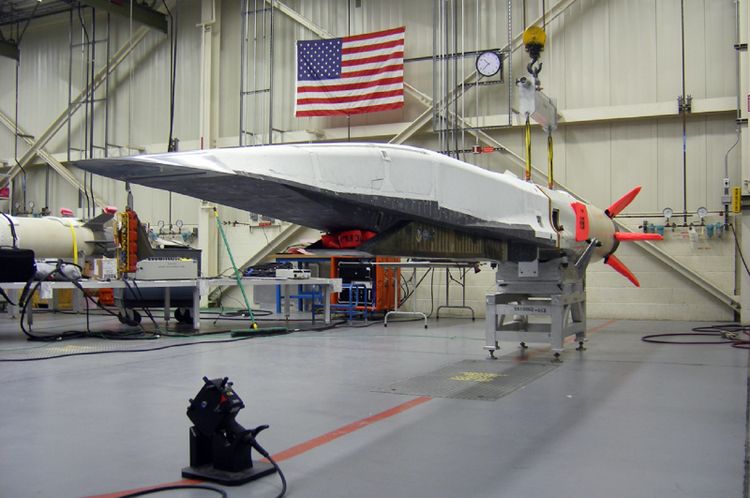
Since the 1990s, the American Air Force Research Laboratory has been involved in the design, development and testing of a hypersonic propulsion system with a view to creating a missile capable of Mach 6 (4,000mph).
Still a work in progress, the X-51 Waverider has shown plenty of promise during testing reaching speeds of over 3,000 mph.
The result is the Boeing X-51 Waverider, an unmanned scramjet aircraft designed to be launched from a B-52 bomber or F-35 fighter.
Armatix smart pistol
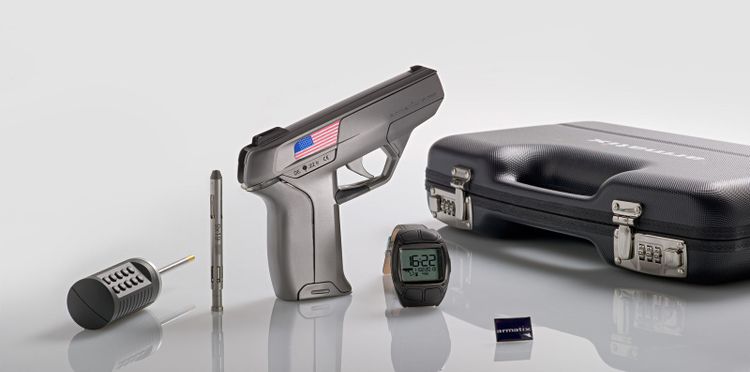
The Armatix Smart Pistol is a .22 calibre pistol with smart technology designed to ensure it can only be fired by an authorised user. Unlike designs from the movies, this gun doesn’t function by a fingerprint reader on the grip, but instead requires the use of an accompanying smartwatch.
This watch operates as a RFID key to the lock allowing it to fire. The watch itself also holds other real-time data on the gun including battery charge levels and the number of shots fired within a given timeframe.
Laser Weapon System (LaWS)
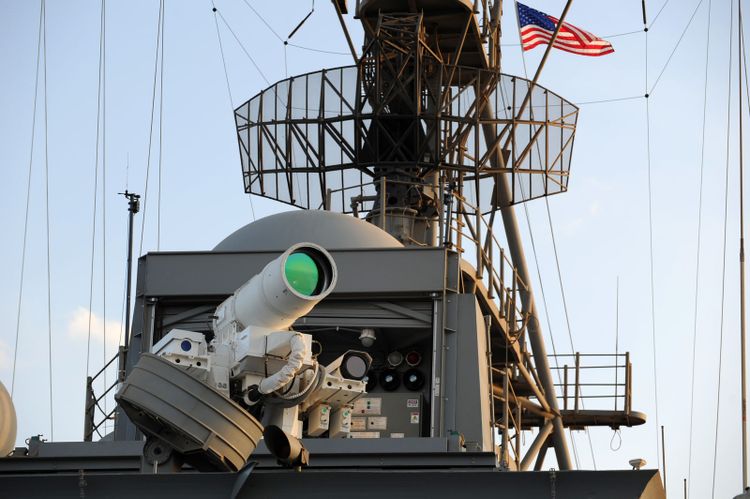
The Laser Weapons System is essentially exactly what it sounds like – a ship-mounted laser cannon. This laser system allows for pinpoint targeting and destruction of enemy assets including everything from small ordinance to enemy craft engines.
You only need to see the laser in action to appreciate its benefits. It also has the advantage of being much more cost-effective and efficient when compared with traditional projectile weaponry as it only requires sufficient power to fire. Where missiles need to be built, transported, stored and maintained in order to be used.
Boeing Laser Avenger
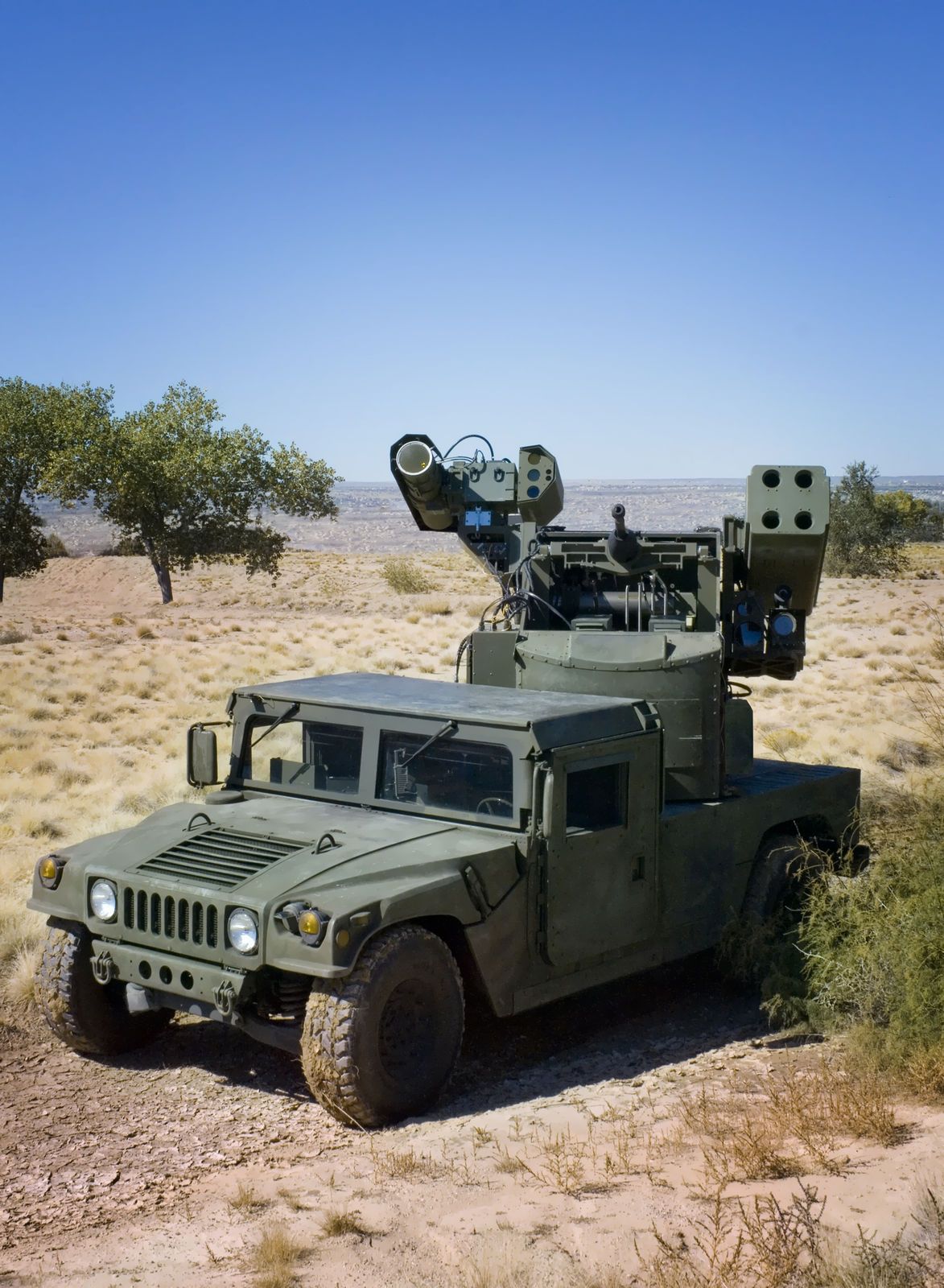
The Boeing Laser Avenger is an aerial defence weapon that can be mounted to a vehicle and used to shoot down enemy UAVs.
Unlike conventional anti-aircraft weaponry, the Boeing Laser Avenger system doesn’t create a muzzle flare or smoke trail when it fires. This means it can be fired from concealed positions keeping friendly troops safe and out of harm’s way.
High Energy Laser Mobile Demonstrator (HEL MD)
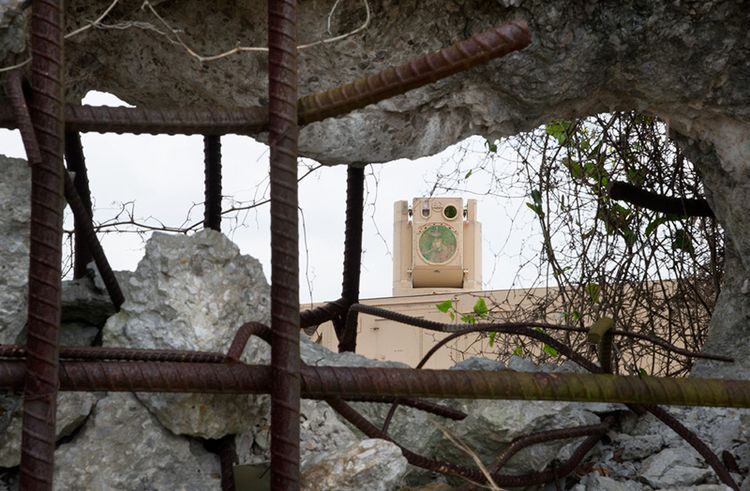
Boeing is working on improving the High Energy Laser Mobile Demonstrator’s power to increase it to more tactically significant levels for use against incoming rockets, mortar and artillery strikes.
Human Universal Load Carrier (HULC)
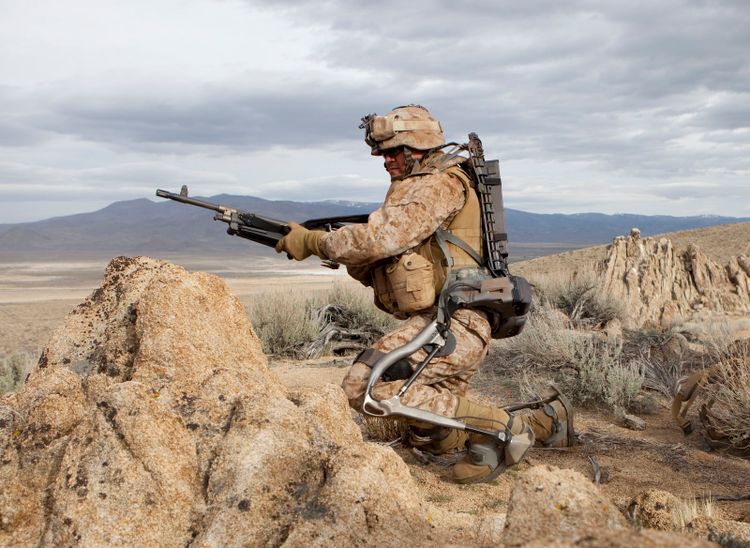
The Human Universal Load Carrier is a hydraulic-powered exoskeleton suit intended to support soldiers on the battlefield and allow them to transport heavy loads for extended periods of time without the usual exhaustion that would come with such a task.
Hybrid Insect Micro-Electro-Mechanical System (HI MEMS)

Another weapons system straight out of science fiction, this time in the form of bugs.
Though it might look like someone’s just strapped a circuit board to the back of a beetle, it’s actually a basic representation of a technology that’s been worked on for decades. Micro Air Vehicles (MAVs) and Micro-Electro-Mechanical Systems (MEMS) have been in the works since the 1940s and are essentially cyborg bugs and winged creatures that have been enslaved to do man’s bidding.
A freedom of information request to DARPA revealed some interesting truths behind this military hardware that included the implanting of technologies into insects at the larva and pupae stage for the greatest chance of viability. Cameras and tracking devices obviously provide perfect tracking capabilities that no one would expect – ideal for surveilling enemy bodies or even a Government’s own citizens.
XM25 Counter Defilade Target Engagement (CDTE)
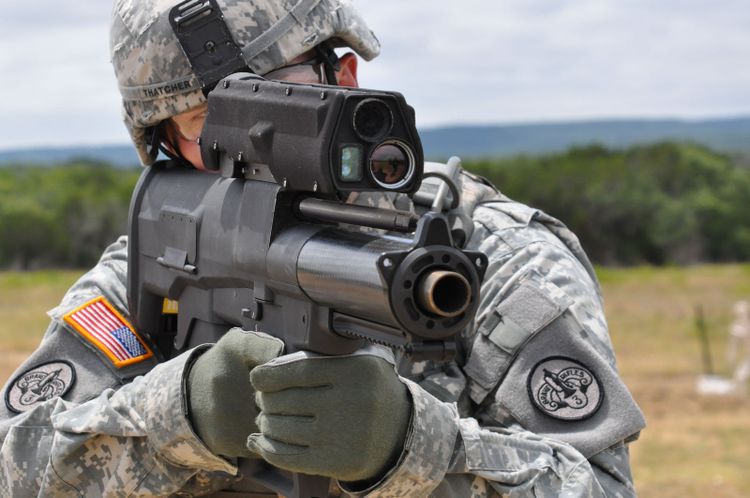
The XM25 Counter Defilade Target Engagement System is a semi-automatic airburst grenade launcher with a laser rangefinding system allowing soldiers to calculate the distance to target for most effective combat use.
The XM25 has almost quadruple the effective range of standard grenade launchers but is also heavy and cumbersome to use. Budget cuts delayed entry into service and other issues have called development and deployment into question. Nonetheless, this is one dangerous weapon on the battlefield.
Fostech Origin 12 Shotgun
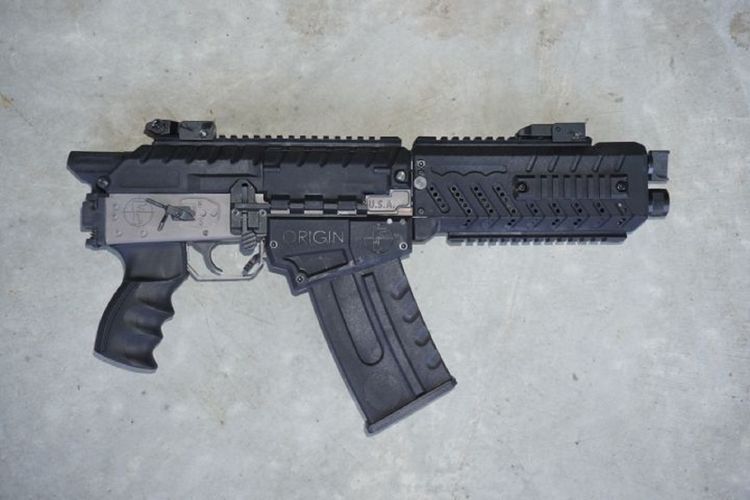
The Fostech Origin 12 shotgun is pitched as the World’s fastest-firing shotgun.
Although not fully automatic, this shotgun is capable of firing 30 rounds in under eight seconds.
Fostech Origin 12 Shotgun with a suppressor
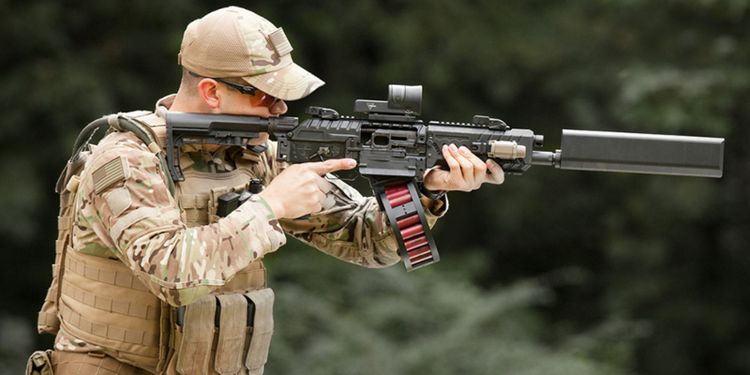
It’s also capable of working with a SilencerCo Salvo 12 sound suppressor, making it a menacing weapon in anyone’s hands.
Cornershot
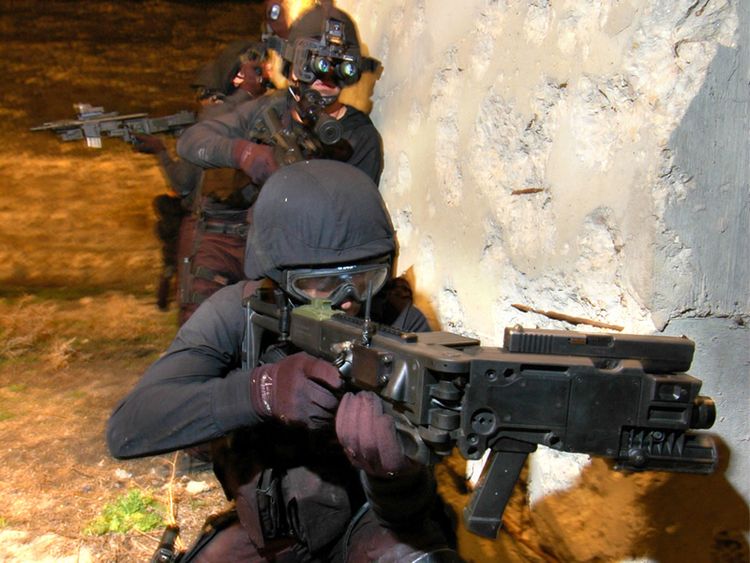
Being able to shoot around corners is the military operator’s dream – meaning they can fire at a target without exposing themselves to risk.
The Cornershot device itself is capable of working with a range of pistols which makes it flexible, but due to the nature of the weapon its range is effectively limited to 100 metres.
KRISS Vector
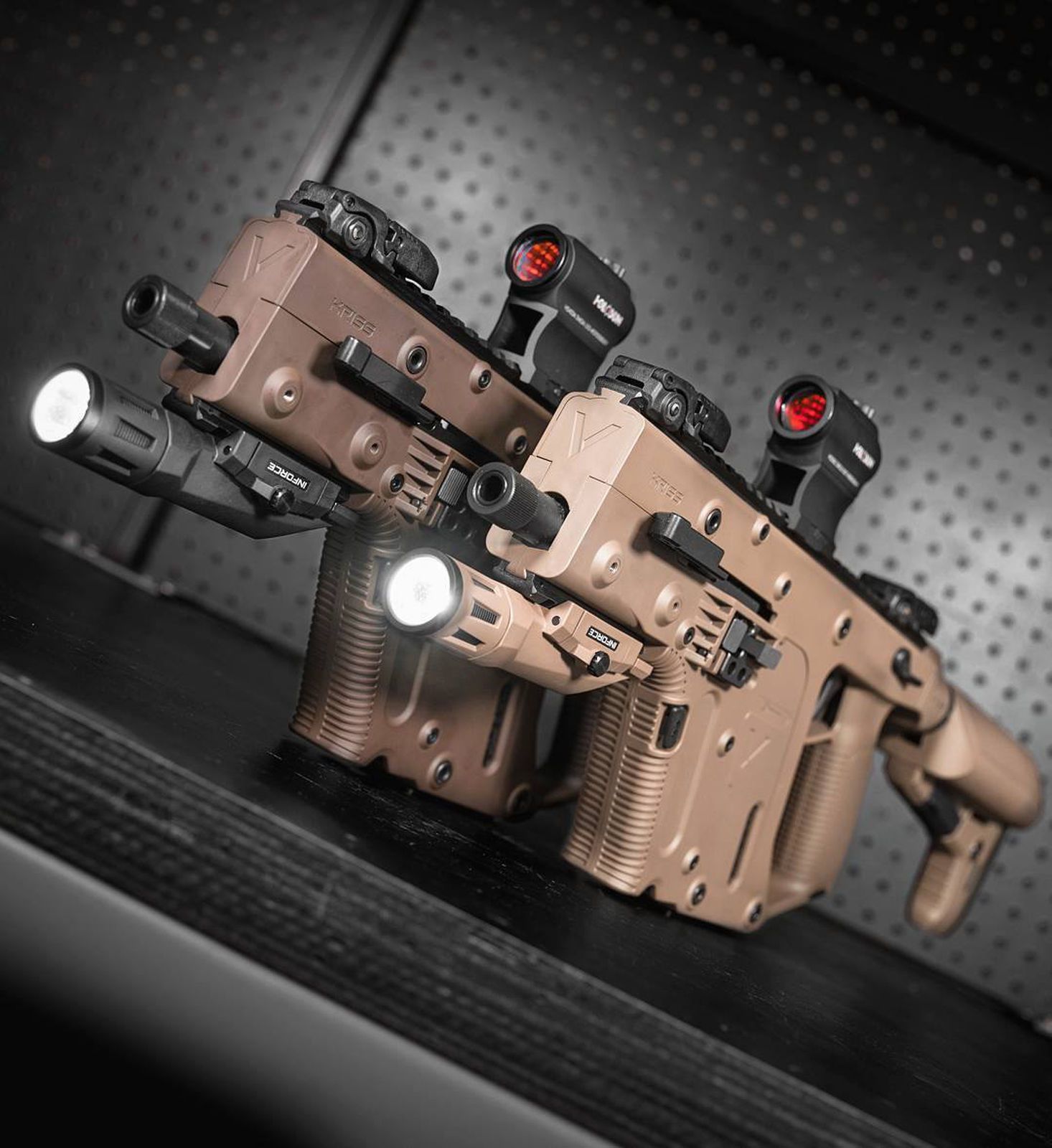
This compact submachine gun is an extremely capable and flexible weapon that’s compatible with a range of different ammunition calibres including .22, .40, .45 and 9mm Parabellum.
But what makes it interesting is the KRISS Super V Recoil Mitigation System which pushes expended energy from fired rounds downwards to keep the gun on target and dramatically reduce recoil.
Mile Maker – Precision-Guided Firearms
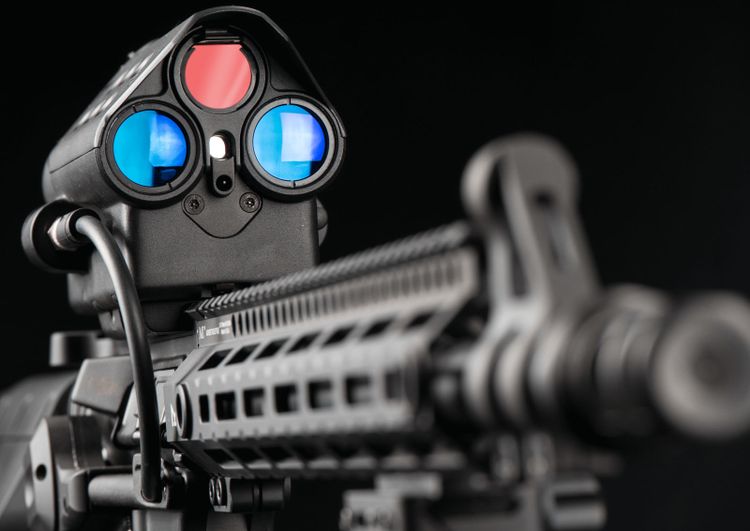
Precision-Guided Firearms are designed to take the missile lock-on system from fighter jets and apply them to traditional long-range rifle systems.
These firearms use target tracking, advanced fire control and heads-up display technologies to help guide a bullet to its target and account for human error to ensure a higher probability of hitting the target first time, even at long range.
Human Universal Load Carrier (HULC)
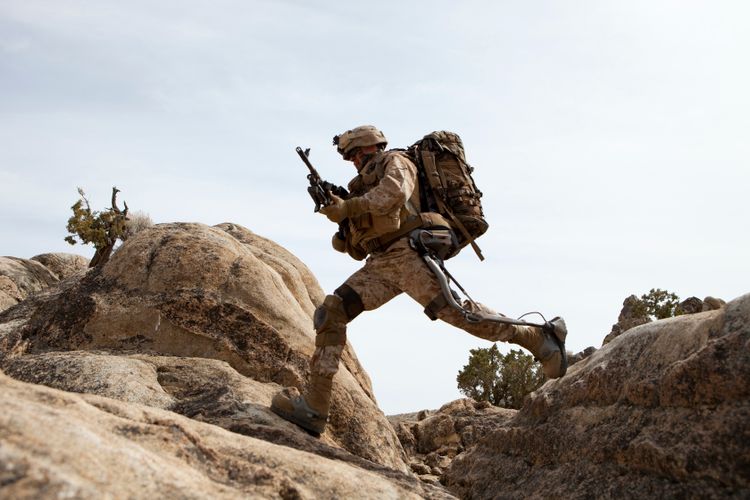
This exoskeleton suit is built to transfer the weight to the frame and reduce the risk of injury to the user. The design has also been developed to allow the individual wearer to retain a full range of motion while also being compatible with other technology such as armour, heating and cooling systems as well as a range of custom attachments.
This is the first taste of cybernetics on the battlefield and shows the potential for more to come.
Personnel Halting And Stimulation Response (PHASR) Rifle
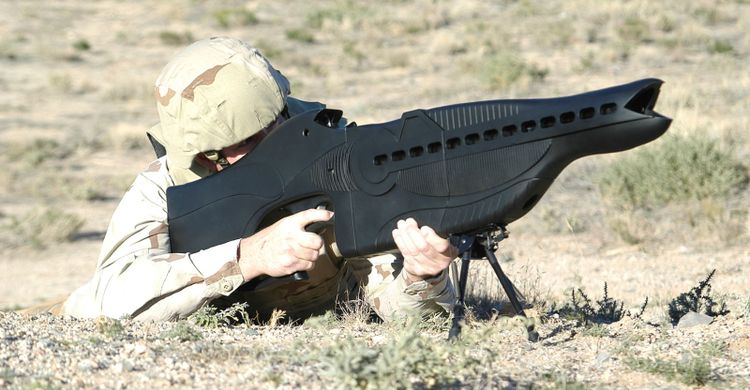
This crazy-looking weapon first appears like an alien technology or something out of a science fiction flick.
It’s actually a non-lethal incapacitation device designed to temporarily blind and disorient targets. The PHASR rifle fires a low-intensity laser beam with a blinding effect and is perfect for a variety of situations where the aim is to disable the target.
Mile Maker – Precision-Guided Firearms
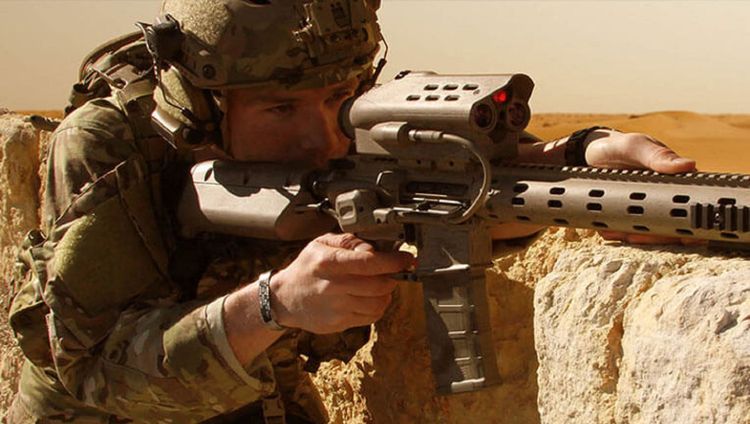
The first Precision-Guided Firearm system was developed by TrackPoint, an American company that developed a bolt-action system capable of engaging targets accurately at 1,280m, even when moving. The result is a scarily accurate rifle with a hefty price tag.
Extreme Accuracy Tasked Ordnance

DARPA’s Extreme Accuracy Tasked Ordnance is essentially a self-steering, guided bullet designed for military snipers to support improved accuracy over long-range in unfavourable conditions (such as high winds).
Essentially a “smart” bullet, this ammo has the ability to home in on targets and even change course in mid-air to compensate for target movement or changes in wind speed.
The result is a round that can even be fired by novice shooters and still hit their target with near-pinpoint accuracy at long range. Scary stuff.
Obrum PL-01 Stealth Tank
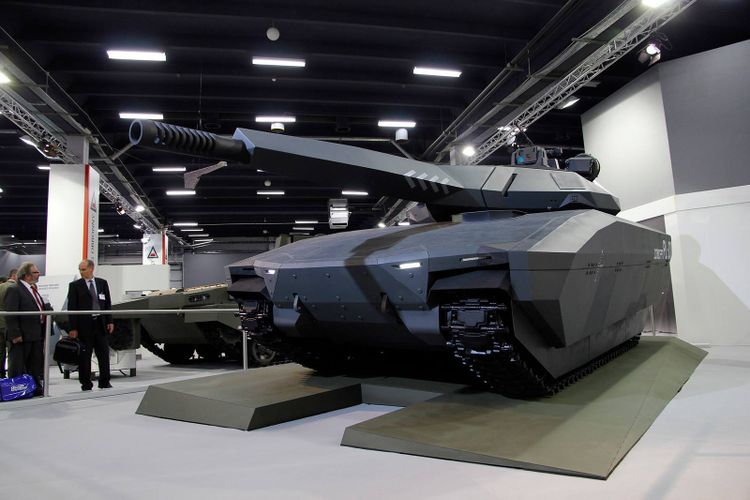
PL-01 is a Polish light tank with a modular ceramic-aramid shell and additional armoured plating capable of providing a full range of protection against a variety of projectiles, improvised explosive devices and landmines.
Equipped with a 940hp engine it’s capable of a top speed of just under 45 mph with a range of 310 miles. The highlight of this tank though is the stealth technology.
As a fifth-generation stealth tank, it’s the world’s first armoured vehicle that’s practically invisible to both infrared and radar detection systems. The various technologies here make this the most advanced stealth tank in the world which is surprising considering it’s come out of Poland and not Russia or https://www.facebook.com/profile.php?id=100069921794720the United States.
Quantum Stealth camouflage

Straight out of science fiction comes a light-bending technology called “Quantum Stealth” that provides active camouflage to the user and mimics the surrounding environment.
Pictures of the actual technology haven’t been released for security reasons, but these mockups give an idea of how effective the camouflage is.
Military testing has demonstrated that the Quantum Stealth material is effective against both infrared and thermal scopes and works as one of the most efficient camouflage systems currently in military use.
Long Range Acoustic Device (LRAD)

The Long Range Acoustic Device (LRAD) is a piece of modern military technology with two different applications.
Firstly, it can be used as a hailing device – allowing users to send messages over a longer distance than is normally possible with loudspeakers. Secondly, it is also capable of being used as a so-called “sonic weapon” for riot control, crowd dispersion or other in situations that require a non-lethal solution to hostile action.
The LRAD has been deployed by various police forces, but is even in use on several luxury cruise liners and has been effectively used against armed pirates to prevent them boarding.
Zumwalt Class Deserstroy
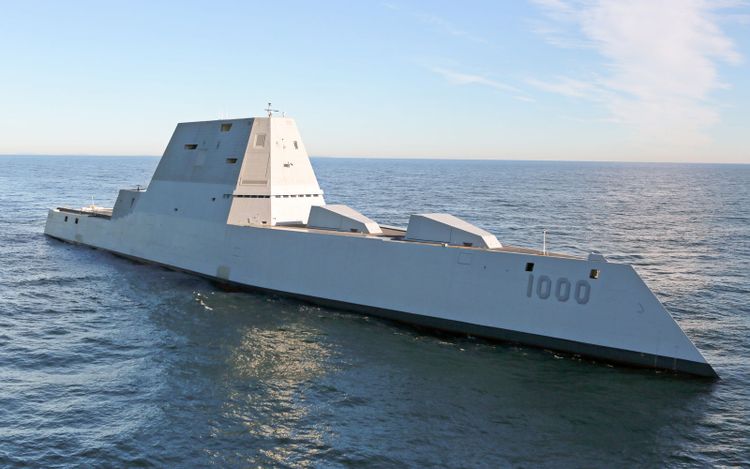
Although it looks like some sort of bonkers submarine, this is actually a multi-role battleship with stealth capabilities. The low-radar cross-section and a wave-piercing hull combined with a range of other technologies make this destroyer a ship far less capable of detection by enemy radar than its comparable counterparts.
Backed by $9.6 billion in research and development costs, the Zumwalt Class Destroyer is possibly the most expensive vessel of its kind. The design apparently gives the destroyer a radar profile similar to a fishing boat and make it 50 times harder to spot than standard destroyers.
The Zumwalt Class Destroyer also boasts an Advanced Gun System which comprises of a 155mm naval gun capable of firing a Long Range Land Attack Projectile (LRLAP) over 80 nautical miles. A controversially expensive destroyer with plenty of interesting technologies that demonstrate the power of the modern American Navy.
Northrop Grumman MQ-8C Fire Scout
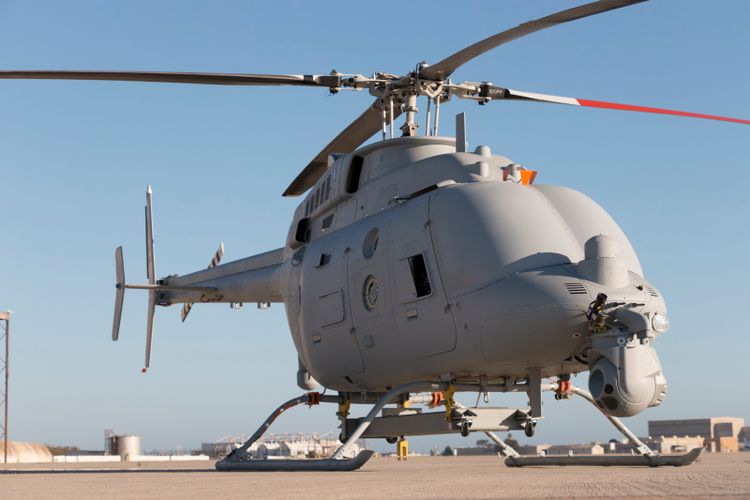
This unusual-looking helicopter is an unmanned aerial vehicle designed to provide reconnaissance, aerial fire support and targeting for ground troops. It is the latest in a line of similar craft that has been in development as part of $3.06 billion programme in operation since 2010.
Electromagnetic Rail Gun
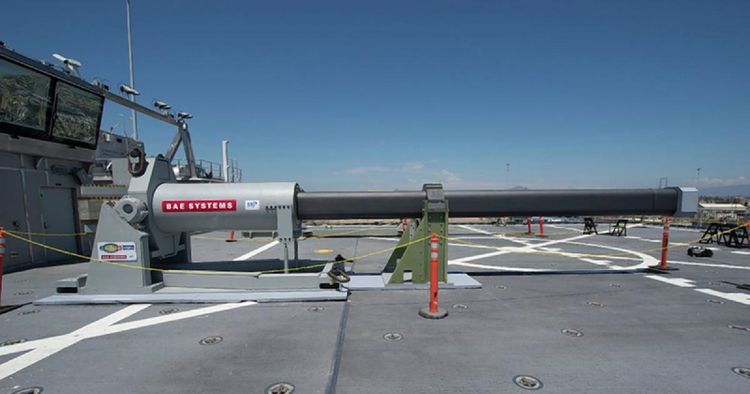
This monster cannon is actually the culmination of over a decade’s worth of development and testing. An electromagnetic rail gun capable of firing projectiles at over 4,500mph and smashing through concrete structures 100 miles away.
The result is a longer-range weapon with much greater accuracy. They do, however, require a great deal of power and scientists are still working on perfecting the output for maximum performance without actually tearing the weapon apart when it fires.
High Energy Laser Mobile Demonstrator (HEL MD)

The High Energy Laser Mobile Demonstrator (HEL MD) is another laser cannon capable of blasting enemy drones out of the sky. This 10-kilowatt laser can be vehicle mounted for easy transport to where it’s needed.
Powered by lithium-ion batteries and a diesel generator, it’s easy to use and maintain but provides the army with the firepower they need to keep enemy eyes out of the sky.
Hololens for soliders

A while back Microsoft won a multi-year contract to supply the US Army with Hololens devices. Since then the company has collected 80,000 hours of user data from soldiers.
The data has been used to improve the technology (known as Integrated Visual Augmentation System (IVAS)) in order to assist soldiers in combat like never before.
This augmented reality system would do all sorts of things. It could make it so soldiers can see through smoke, they can also use it to see around corners without putting themselves in danger and get information on the surrounding environment too.



